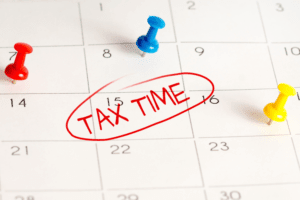24
Stale Dated Check Expired Check Returned Check and Bounced Check Reasons

Checks that linger only buy the company more time to gather up enough resources for payment to clear if more time is needed. Outstanding checks that remain so for a long period of time are known as stale checks. A returned check is one that has been declined to be honored by a bank. Allowing too much time to elapse can increase the chances of a returned check. Allowing the amount of time to elapse for a check to become stale can create multiple issues in claiming the payment. If you are the recipient or payee of a stale-dated check, you will want to know your options for cashing or depositing the old check.
How Current Events Have Changed Banking
Hashaw Elkins is a financial services and tax professional, as well as a project management consultant. She has led projects across multiple industries and sectors, ranging from the trial balance Fortune Global 500 to international nongovernmental organizations. Hashaw holds an MBA in Real Estate and an MSci in Project Management. She is further certified in organizational change management, diversity management, and cross-cultural mediation. – Contact the person who wrote the check and ask if they can give you a new one.
What kinds of checks can get stale?
Checks can become “stale dated” and may be harder, or even impossible, to cash. Every business owner should recognize that if their vendors or partners do not deposit checks, those funds do not remain with the business. A stale check is owned by the recipient or the state, leaving the business without additional funds. Businesses should promptly address stale-dated checks to prevent them from becoming unclaimed property. The National Association of Unclaimed Property advises sending a formal letter to business owners if their property risks becoming unclaimed.
Can I Deposit a Stale Check Into My Account?
With a stop payment notice, the bank employee who is responsible for handling your accounting transactions ensures that the check becomes void. A stale check is one that has not been cashed after a certain period of time. While there is not a single, universal period of time that makes a check “stale,” six months is a common amount of time that a check is good for. The UCC (or U.S. Uniform Commercial Code) doesn’t require banks to cash a check older than that — what does stale dated mean on a check though it doesn’t forbid them from cashing checks that are that old, either.
Banks are still allowed to process a stale check as long as the institution deems the funds are good. A Federal Reserve regulation says a bank doesn’t have to deposit a check if it has reason to doubt that it’ll be able to collect the money from the paying bank. When a business writes a check, it deducts the amount from the appropriate general ledger cash account. If the funds have not been withdrawn or cashed by the payee, the company’s bank account will be overstated and have a larger balance than the general ledger entry.
- At this point, the check is not cashable, and you must file a claim directly with the state to recover it.
- One way to avoid this occurrence is to maintain a balanced checkbook.
- If you have a stale check, it’s best to contact the person or business that issued it, if possible, to see if they can provide a replacement.
- In some cases, if a person’s bank was negligent – e.g., their bank failed to perform due diligence in verifying the check, then they could request compensation for any losses or damages.
- The only condition in this situation is the financial institution has a right over the refusal of the check.
- Checks that have been outstanding for over six months are considered “stale” and cannot be cashed.
How Do I Reconcile Outstanding Checks with My Bank Statement?

While the UCC places banks under no obligation to cash stale checks, many banks and credit unions may go ahead and cash the check even beyond six months. The disclaimer here is that banks are not under any obligation to honor a stale-dated check. Stale-dated checks are outdated checks issued to the bank https://www.bookstime.com/ after the payment date has expired. Hence, an employer must be very cautious about issuing checks for different departments including payroll and other business areas.

- The account could have been closed in the interim, or it might have insufficient funds.
- Now, let’s dive deep into understanding a stale-dated check and how it functions.
- Also, the issuers of checks sometimes note a time limit on their checks’ validity on the face of the check.
- The payee should contact the issuer to request a new check if this occurs.
- There is also a chance the check writer might have issued a stop payment thinking the check had become lost or stolen.
- The six-month rule usually applies to personal and business checks, including payroll ones.
Each state has distinct regulations regarding the timing for companies to disclose their unclaimed property. The dormancy period signifies the duration required for uncashed checks to qualify as unclaimed property. It’s also a good idea to monitor your account and keep an eye out for outstanding checks that you’ve written. That way, you’re not only aware of your financial standing, but also shielding yourself from issuing a check when there aren’t sufficient funds to cover it. Someone who wrote a personal check is probably not prepared for the hit their checking account balance will take if you cash it months later.

Defining Stale-Dated Checks
✝ To check the rates and terms you may qualify for, SoFi conducts a soft credit pull that will not affect your credit score. • Depositing a stale-dated check could lead to the check being returned and incurring a fee. You should also keep diligent records of your attempts to contact the business owner. The exact due diligence requirements vary by state, but a formal letter to the check recipient is usually a good idea.
